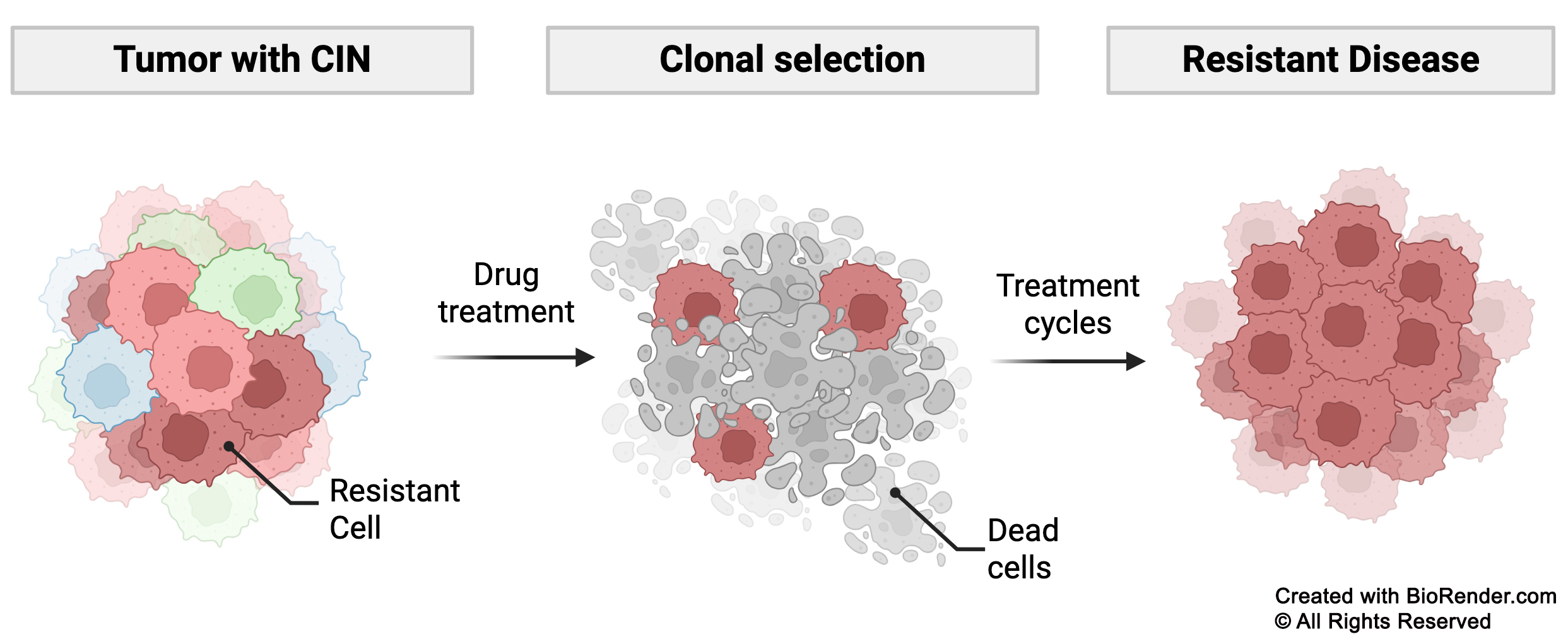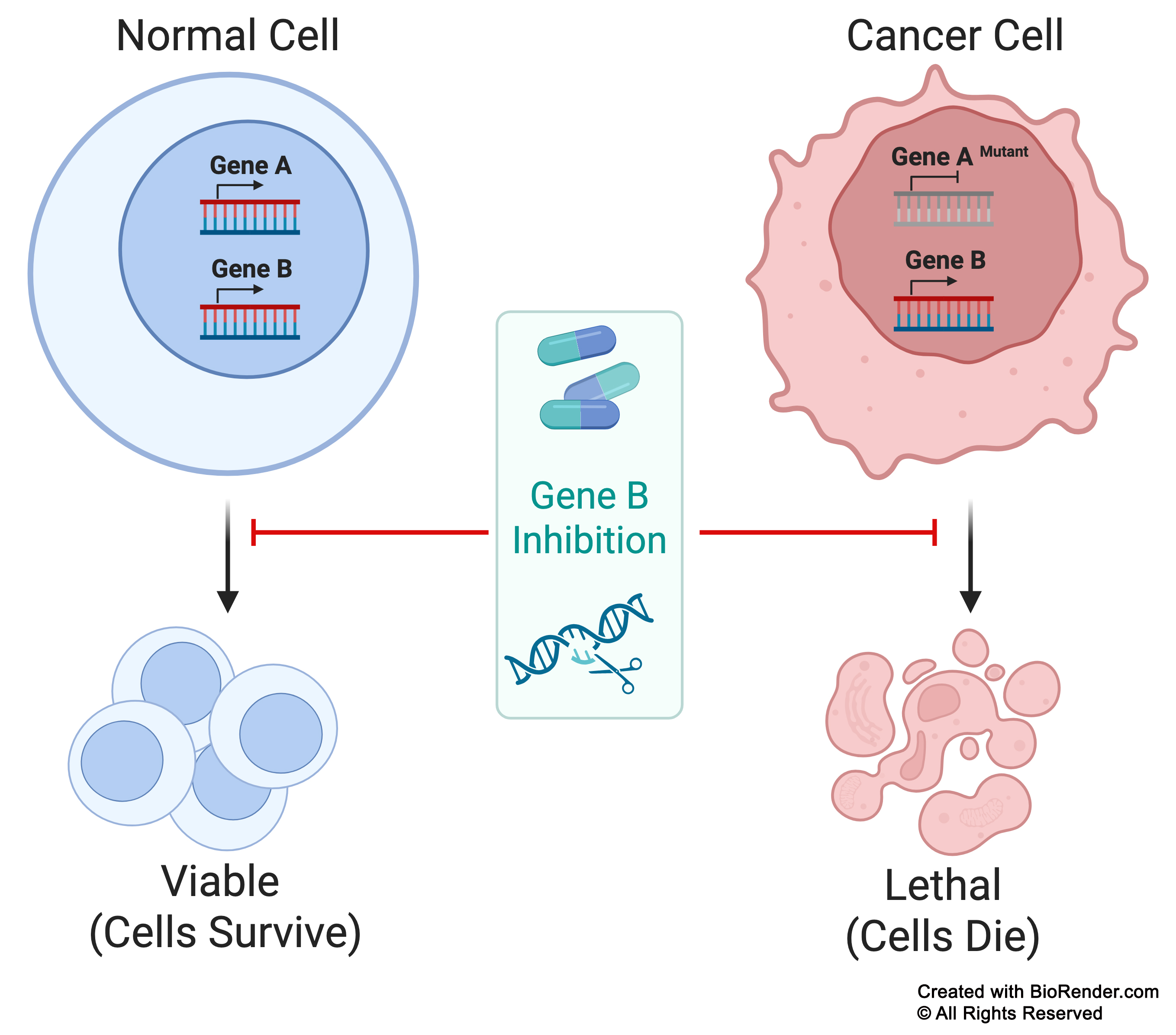
PRECISION MEDICINE
Precision Medicine represents a transformative approach to cancer therapy, tailoring treatments to the unique genetic and molecular profiles of each patient. By moving beyond a “one-size-fits-all” strategy, precision medicine aims to deliver highly targeted, effective therapeutic interventions that improve outcomes and minimize side effects. This innovative field is rapidly changing how we understand and treat complex diseases like cancer.
Our research leverages state-of-the-art quantitative imaging microscopy (QuantIM) to uncover new drug targets and evaluate the effectiveness of leading small molecule inhibitors, with a focus on colorectal and ovarian cancers; however, our work has far-reaching implications for virtually all cancer types. A key aspect of our work is the exploration of the Synthetic Lethal paradigm, a pioneering strategy that targets cancer-specific genetic vulnerabilities, like defects in Chromosome Instability (CIN) genes. In this approach, the combination of two genetic changes, each harmless on its own, becomes lethal to cancer cells when combined. By exploiting these unique weaknesses, we are advancing the next generation of precision medicine therapies that hold the promise of more selective and powerful cancer treatments.

We invite enthusiastic students and postdoctoral fellows to join our dynamic team, where you’ll gain hands-on experience with cutting-edge technologies and contribute to research that is transforming the landscape of cancer therapy.
We are pioneering new frontiers in precision medicine, with a special focus on understanding and overcoming drug resistance in cancer, and harnessing the power of synthetic lethality to develop highly selective therapies. By integrating advanced genetic tools and state-of-the-art imaging, we are uncovering the mechanisms that drive treatment failure and discovering novel strategies to selectively target cancer cells.
Tackling Drug Resistance: Targeting the Roots of Tumor Survival
A major barrier to successful cancer therapy is the emergence of drug-resistant clones within tumors. Tumors are often composed of a diverse mix of cells that arise due to CIN; while most are eliminated by treatment, a small population with resistance traits can survive and eventually repopulate the tumor. Our research aims to identify and target the early genetic drivers (i.e., CIN genes) that are essential for cancer cell survival and present in all tumor progeny. By focusing on these foundational vulnerabilities, we strive to develop therapies that deliver lasting, on-target effects to maximize cancer cell killing while minimizing harm to healthy tissues.

A schematic showing a heterogeneous tumor treated with a drug, where most cells die but resistant clones survive and regrow the tumor. By targeting early, essential drivers, therapies can achieve more durable and selective responses.
Synthetic Lethality: Toppling Cancer’s Genetic Jenga Tower
We are also at the forefront of research into synthetic lethality, an innovative approach that exploits the unique genetic weaknesses of cancer cells. In this strategy, cancer cells with a mutation in one gene (i.e., a CIN gene called Gene A) become exquisitely sensitive to the inhibition of a second gene (Gene B), a combination that is harmless in normal cells. This is akin to a Jenga tower: cancer cells, already missing key blocks due to genetic mutations in CIN genes, can be toppled by removing a key foundation block (Gene B), while normal cells, represented by an intact Jenga tower, remain stable. By using genetic tools (e.g., siRNAs or CRISPR) and small molecule inhibitors, we are identifying targets and developing therapies that selectively eliminate cancer cells by exploiting their hidden vulnerabilities in CIN genes.

Schematic showing normal cells (blue) with intact Genes A and B, and cancer cells (brown) with a defect in Gene A. Targeting Gene B in the cancer cell leads to cell death, while normal cells are unaffected.
Through these innovative approaches, our team is driving the next generation of precision medicine, offering hope for more effective, durable, and less toxic cancer treatments. Although we are typically focused on colorectal and ovarian cancers, or findings have broad-spectrum implications for virtually all cancer types.